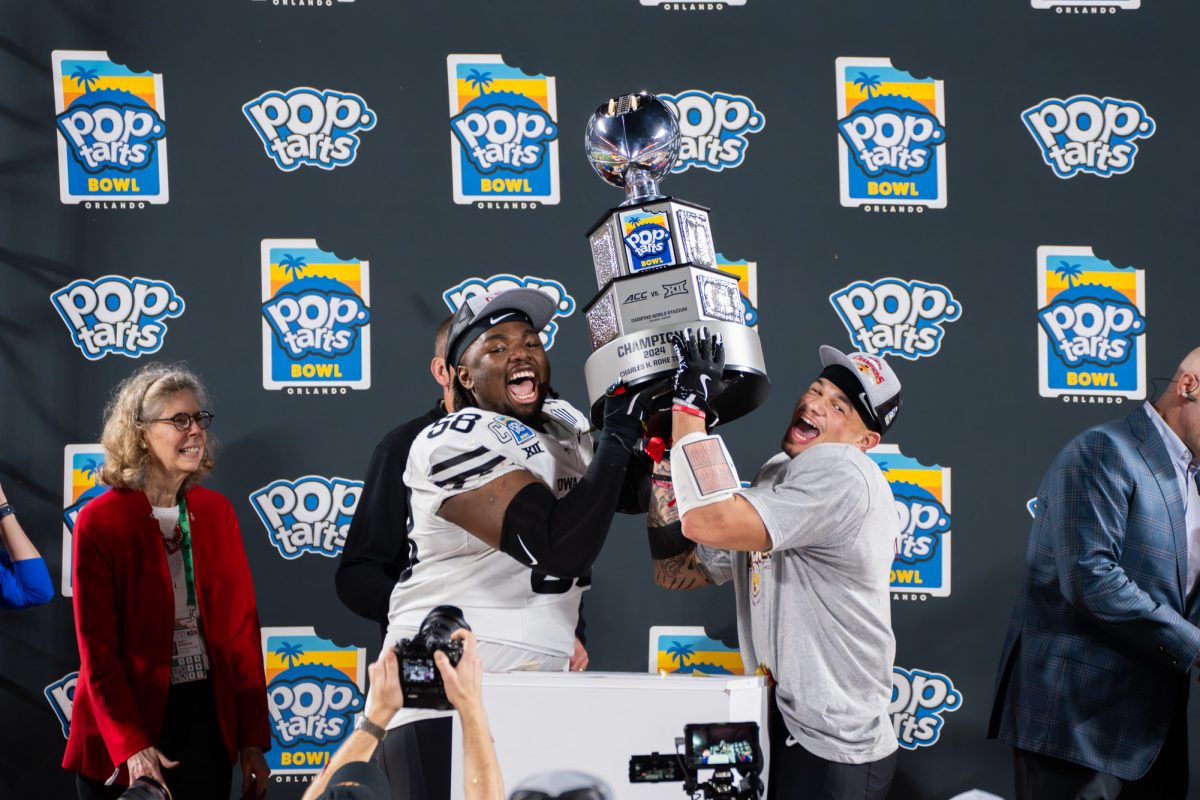Yetley: From a straight woman: Females fight every day to defeat gender roles
September 30, 2013
Gender roles are commonly assumed identities given to people, based on their sex; but they actually have no internal connection. Sex is a biological term, while gender is a social construction. Once people know a person’s sex, they will then treat that person with the gender role typically assigned to him or her. This influences the person’s self-identity.
Most people accept these gender roles early on; what else is a 2-year-old to do? Can one still be masculine with long hair? Can one still be feminine with short hair? Questions like these frame many adolescent lives whether consciously or not.
When I was a child, I fell into the gender role my family and others pressed upon me. I had dolls, played dress up and pretended to put on my mother’s makeup. My gender wasn’t a question, but I didn’t really know what it meant.
Gender was similar to religion: I knew what I was, and I knew what was expected of me — but I didn’t know why. Religion is certainly different for each person, but so is gender. How each person interprets his or her role is very subjective.
When I was in elementary school I started dance. There were maybe three or four boys enrolled at the studio at a time; dance was a girl thing, and that was as far into gender I ever noticed as a child.
This was a little different for girls who did sports as children. Both boys and girls played soccer, but even in a recreational league sports teams were either all girls or all boys. Splitting up the sexes at such a young age further built on the idea that there was a difference between them.
There was never a single moment of realization when I knew I was female and that I was treated differently because of that fact. The differences I noticed started before I even knew there were gender roles. Like in kindergarten, the class would start playing games like boys vs. girls. In high school, people would ask me to take notes in class, or I would be in charge of publicity in club projects. None of these were interests of mine, yet I would be asked to play these roles because I was a girl.
When I really became aware of my gender was when girls my age started dating. It starts as simple gossiping about who likes whom and what it means, but later, girls are bombarded with magazine-instigated questions like “What does your man want?” “How to get the guy of your dreams” and “100 best sex tricks.” These all sent the subliminal message that a woman’s role in a relationship is sex. Thank God Cosmo is not the only influence in young women’s lives.
Even with other influences, there was still a moment when I realized I was more than just a face. I don’t remember when that moment was, maybe it was in stages, but there was a change. Every girl has to go through this moment, the realization that you have to start proving to others that you’re smart.
Because it felt like no one was going to assume that, as a girl, I could be smart.
The adjective “smart” can be replaced with whatever motivational word a person chooses. I chose smart, but others could choose strong, aggressive, powerful, decisive or any adjective they felt they had to prove because it was not assumed based on their gender.
Part of that realization was deciding that I wanted to be smart. It would have been easy to fall into the role of the “ditzy girl,” but it takes effort to prove that I think for myself. It is a constant battle that I — and women everywhere — have to fight every day to defeat the female gender role.
Breaking down gender roles doesn’t mean that women should not act in certain ways or fulfill certain roles. It means that women should be able to perform any roles they want. Women should feel proud of their qualities, regardless of how masculine or feminine society deems them to be. There is no reason to say that a women can’t be nurturing and caring or aggressive and strong willed — or all of the above.
An individual is an individual, regardless of their gender.






